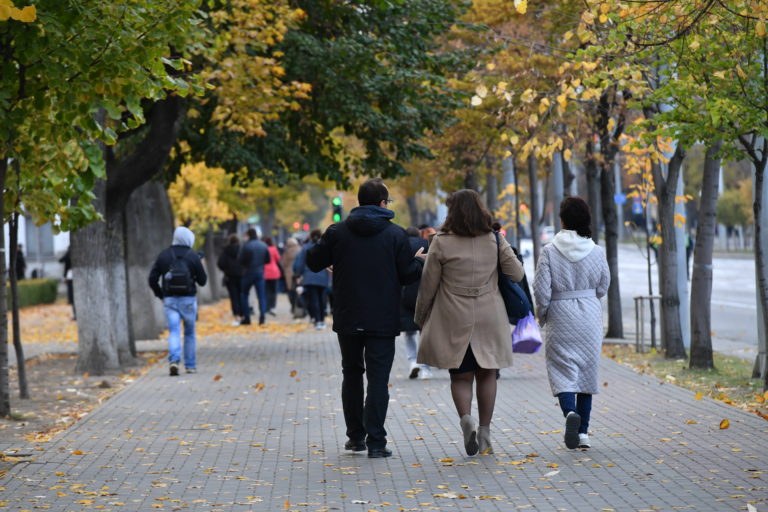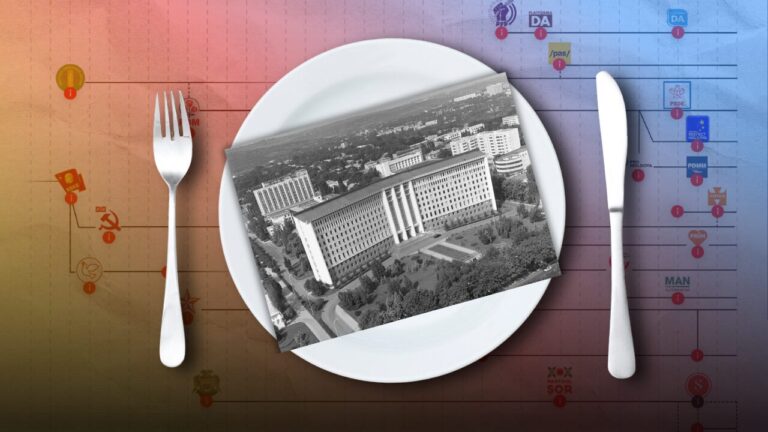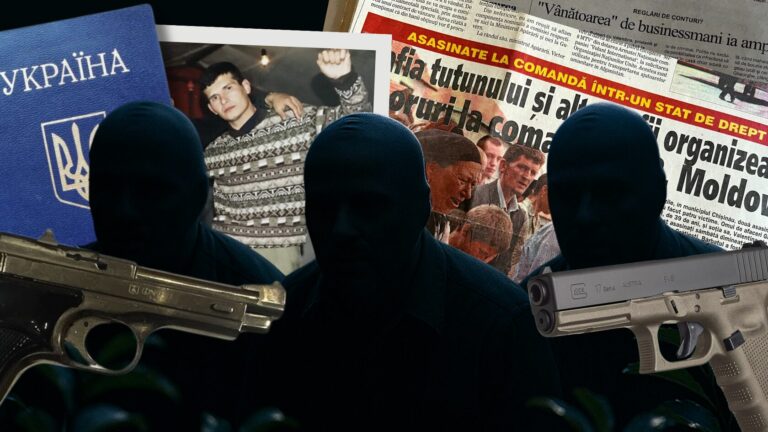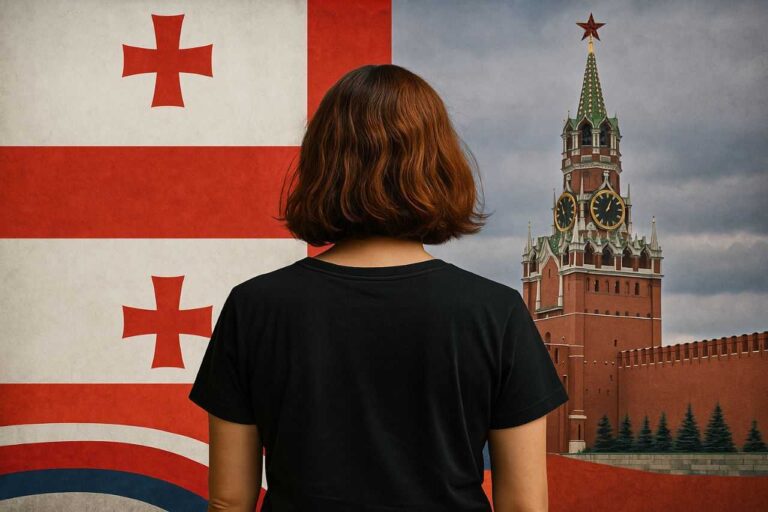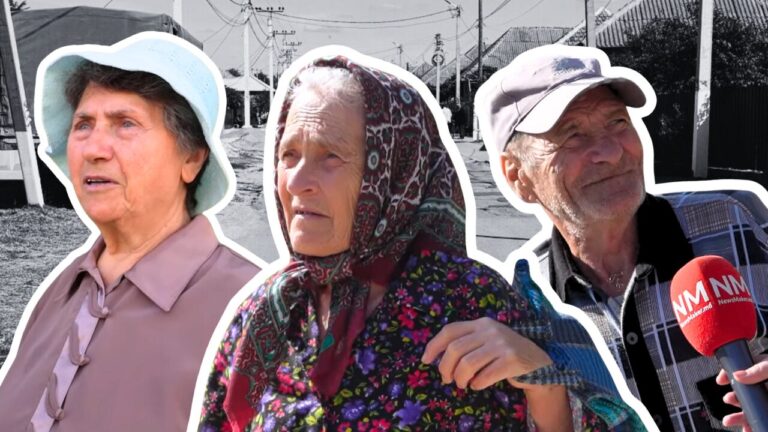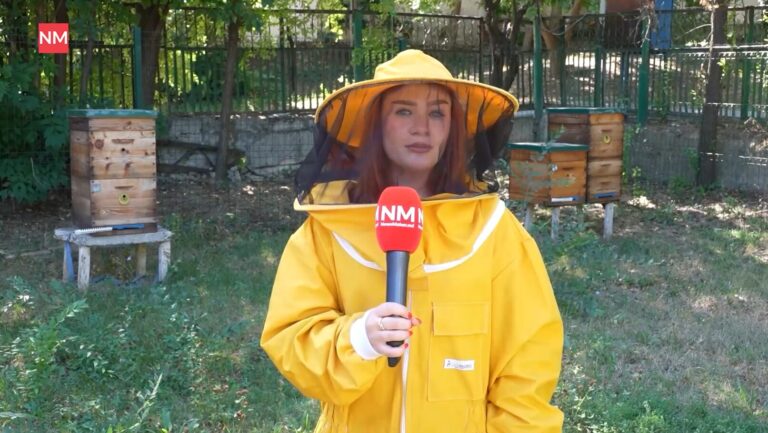The Invisible Epidemic
How and Why Fakes Become Viral in Eastern Europe
The Invisible Epidemic
How and Why Fakes Become Viral in Eastern Europe
As the COVID-19 pandemic takes over the world, our online communities are invaded by viral messages, too. Eastern Europe struggles with containing the outbreak. It also struggles with fakes about the coronavirus. They don't travel through mainstream media but thrive on all kinds of social media platforms and instant messaging chats. Moreover, the same fakes turn up in many Eurasian countries. As part of the international project by the partners within the Russian Language News Exchange, NewsMaker has collected, filtered, and analyzed the most popular COVID-19 fakes in Eastern Europe. We try to figure out why they appear, why folks are so eager to believe and share them, and who might be behind them.
Thanks to social networks, chats, and instant messengers, disinformation and fakes spread like wildfire. The speed is even higher these days since most of us are glued to our screens, trying to absorb as much COVID-19 information as possible.
We divide the most common types of fakes and rumors about the novel coronavirus in Eastern Europe into several groups.
We divide the most common types of fakes and rumors about the novel coronavirus in Eastern Europe into several groups.
Alarmist
"Disinfectant From Helicopters"

Even before the current state of emergency in Moldova, social networks and messenger groups carried fake messages warning that a 'poisonous antiseptic' would be sprayed over the Moldovan capital of Chisinau from helicopters. People were urged not to go out in the evening. Identical 'warnings' messages were spotted in other countries of Eastern Europe and reported by our partner outlets in Ukraine, Belarus, Russia, and Azerbaijan.
In Moldova, for example, the message quickly invaded the schools' parent chats, and in some of them, the 'news' was coming from teachers, who received them via school email inboxes.
The same messages spread on Facebook and Instagram. Many users did question the reliability of this information but said they still chose to warn their subscribers. Just in case.
In Moldova, for example, the message quickly invaded the schools' parent chats, and in some of them, the 'news' was coming from teachers, who received them via school email inboxes.
The same messages spread on Facebook and Instagram. Many users did question the reliability of this information but said they still chose to warn their subscribers. Just in case.
Even before the current state of emergency in Moldova, social networks and messenger groups carried fake messages warning that a 'poisonous antiseptic' would be sprayed over the Moldovan capital of Chisinau from helicopters. People were urged not to go out in the evening. Identical 'warnings' messages were spotted in other countries of Eastern Europe and reported by our partner outlets in Ukraine, Belarus, Russia, and Azerbaijan.
In Moldova, for example, the message quickly invaded the schools' parent chats, and in some of them, the 'news' was coming from teachers, who received them via school email inboxes.
In Moldova, for example, the message quickly invaded the schools' parent chats, and in some of them, the 'news' was coming from teachers, who received them via school email inboxes.

The same messages spread on Facebook and Instagram. Many users did question the reliability of this information but said they still chose to warn their subscribers. Just in case.
"Listen to official information only. Ignore the nonsense, please".

Ion Chicu, the prime minister

'Big Brother'
Rumors about the government spying under the pretext of enforcing the COVID-19 quarantine is another widespread disinformation in the alarmist category. Although the case in some authoritarian countries in the region, like in Azerbaijan or Russia, most Eastern European democracies so far have avoided mass unsanctioned surveillance. Yet, rumors about the opposite thrive.
In Moldova, parent group chats were also hit with fake warnings about the state expanding its digital spying. They fakes would ask folks to be very careful in expressions and in correspondence, because of 'new type of state surveillance' in the country that records all telephone calls and monitors all social networks. No such thing exists in Moldova.
Rumors about the government spying under the pretext of enforcing the COVID-19 quarantine is another widespread disinformation in the alarmist category. Although the case in some authoritarian countries in the region, like in Azerbaijan or Russia, most Eastern European democracies so far have avoided mass unsanctioned surveillance. Yet, rumors about the opposite thrive.
In Moldova, parent group chats were also hit with fake warnings about the state expanding its digital spying. They fakes would ask folks to be very careful in expressions and in correspondence, because of 'new type of state surveillance' in the country that records all telephone calls and monitors all social networks. No such thing exists in Moldova.
'Big Brother'
Rumors about the government spying under the pretext of enforcing the COVID-19 quarantine is another widespread disinformation in the alarmist category. Although the case in some authoritarian countries in the region, like in Azerbaijan or Russia, most Eastern European democracies so far have avoided mass unsanctioned surveillance. Yet, rumors about the opposite thrive.
Rumors about the government spying under the pretext of enforcing the COVID-19 quarantine is another widespread disinformation in the alarmist category. Although the case in some authoritarian countries in the region, like in Azerbaijan or Russia, most Eastern European democracies so far have avoided mass unsanctioned surveillance. Yet, rumors about the opposite thrive.

In Moldova, parent group chats were also hit with fake warnings about the state expanding its digital spying. They fakes would ask folks to be very careful in expressions and in correspondence, because of 'new type of state surveillance' in the country that records all telephone calls and monitors all social networks. No such thing exists in Moldova.
'Fake Quarantines'
In the days before the mass shutdown across most of the Eastern European states, a similar alarmist fake would travel on social media warning about non-existing movement restrictions.
In Moldova, they would falsely claim that leaving your home is now forbidden without a 'special permit.'
Our partner outlet Coda Story reports on the residents of the Russian city Nizhnekamsk sharing something similar through WhatsApp. In a voice message, a female voice would warn about 'imminent city quarantine.'
In the days before the mass shutdown across most of the Eastern European states, a similar alarmist fake would travel on social media warning about non-existing movement restrictions.
In Moldova, they would falsely claim that leaving your home is now forbidden without a 'special permit.'
Our partner outlet Coda Story reports on the residents of the Russian city Nizhnekamsk sharing something similar through WhatsApp. In a voice message, a female voice would warn about 'imminent city quarantine.'
"Girls, I was just now talking with my mother-in-law. My husband's sister works in a hospital. She says our city is about to be closed for quarantine for two weeks. They had a press conference asking to stock up on food for two weeks. It will be forbidden to leave homes, and if you are caught, you'll get a fine. They will begin closing the city any day now. Nothing will work," Coda story quotes the message.
Journalists noted that his message had been recorded on March 16, when neither the federal not regional authorities demanded self-isolation.
Panic-inducing
"They Hide It From Us"
The day after the Moslovan state of emergency kicked in on March 18, conspiracy audio messages started circulating via instant messengers warning that the authorities hide real COVID-19 data and cover up the number of dead from the coronavirus.
"Hi, girls. Here is the latest info. All that TV says is bullshit. I spoke with my friend Marcela, who heard from her friend Radu with access to real information. In Toma Ciorba [a local hospital], the situation is f****d up. There are lots of dead, more than 20 already, and over one thousand infected. They bring them in at night. The information about only 30 infected Moldovans is b******t. The situation is awful. They refuse to treat old people because they don't have ventilators. So the elderly just die, and their bodies pile up in one of the city's morgues. So take care of yourselves."
This was a lie. There were only 36 confirmed COVID-19 cases in Moldova on March 18, with 96 more in observation.

Another fake story that Moldovan citizens keep actively spreading on social networks is about robbers who pretend to be medical workers to trick folks into letting them in their apartments. These messages refer to a police report, which actually does not exist.
Another fake story that Moldovan citizens keep actively spreading on social networks is about robbers who pretend to be medical workers to trick folks into letting them in their apartments. These messages refer to a police report, which actually does not exist.

Video fakes are entirely another level of COVID-19 disinformation in Eastern Europe. Much more popular. Our partner outlet hromadske.ua documents a viral fake story from Ukraine about a public transport passenger allegedly getting beaten up and pushed out of the bus for coughing in Western Ukraine. The incident video was reportedly filmed before the COVID-19 even existed. The country's law-enforcement debunked it, too.
Conspiracies
"The Code Word Is: Sidor Martynovich"

Similarly to other parts of the word, the COVID-19 pandemic became a fertile ground for all kinds of bizarre conspiracy theories in Eastern Europe — from the outbreak being a window-dressing for the orchestrated collapse of the global economy to redistribution of the worldwide power balance.
In Moldova, a viral social media post signed by anonymous 'patient zero' falsy claimed that there's a 'secret code' for interaction with local police. It would advise you to introduce yourself to the police as 'Sidor Martynovich' — the disguised identity supposedly should help to avoid any responsibility for quarantine violations. The message ends with false information that "courts dismiss the vast majority of police protocols" with 'Sidor Martynovichs' in them and that "the coronavirus pandemic is fake, so the quarantine is illegal."
In Moldova, a viral social media post signed by anonymous 'patient zero' falsy claimed that there's a 'secret code' for interaction with local police. It would advise you to introduce yourself to the police as 'Sidor Martynovich' — the disguised identity supposedly should help to avoid any responsibility for quarantine violations. The message ends with false information that "courts dismiss the vast majority of police protocols" with 'Sidor Martynovichs' in them and that "the coronavirus pandemic is fake, so the quarantine is illegal."
Similarly to other parts of the word, the COVID-19 pandemic became a fertile ground for all kinds of bizarre conspiracy theories in Eastern Europe — from the outbreak being a window-dressing for the orchestrated collapse of the global economy to redistribution of the worldwide power balance.
In Moldova, a viral social media post signed by anonymous 'patient zero' falsy claimed that there's a 'secret code' for interaction with local police. It would advise you to introduce yourself to the police as 'Sidor Martynovich' — the disguised identity supposedly should help to avoid any responsibility for quarantine violations. The message ends with false information that "courts dismiss the vast majority of police protocols" with 'Sidor Martynovichs' in them and that "the coronavirus pandemic is fake, so the quarantine is illegal."
In Moldova, a viral social media post signed by anonymous 'patient zero' falsy claimed that there's a 'secret code' for interaction with local police. It would advise you to introduce yourself to the police as 'Sidor Martynovich' — the disguised identity supposedly should help to avoid any responsibility for quarantine violations. The message ends with false information that "courts dismiss the vast majority of police protocols" with 'Sidor Martynovichs' in them and that "the coronavirus pandemic is fake, so the quarantine is illegal."
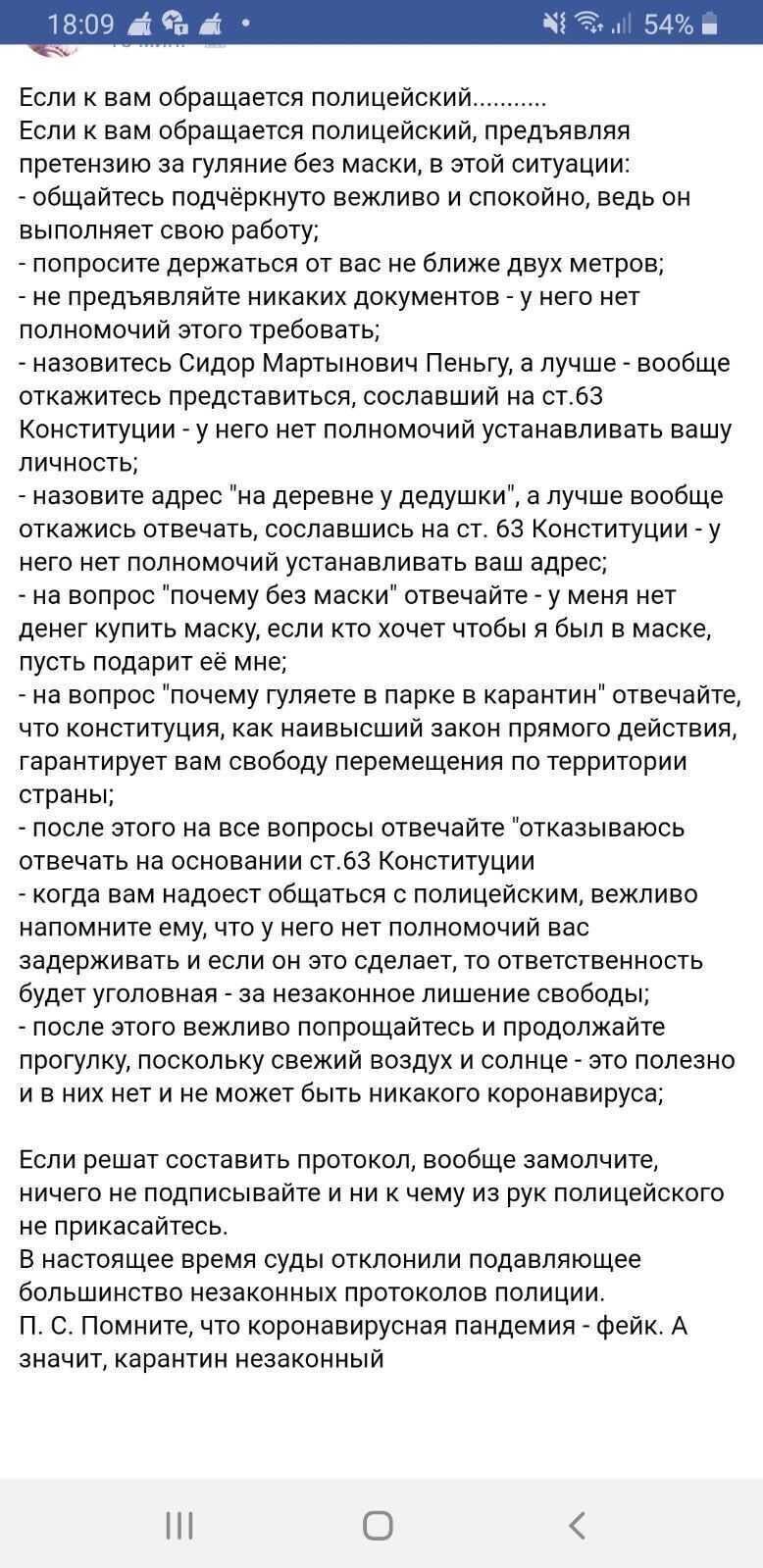
Neighboring Ukraine did not escape the coronavirus conspiracy theories, either. Alina Sheremeta, a journalist of our partner outlet hromadske.ua shares a story from Kyiv:
"I took a taxi one day, and the driver tried to convince me that the coronavirus doesn't exist. That the EU, the US, and China have some sort of a secret agreement to fake it because it is somehow profitable for them.
'Why is it profitable?' I asked.
'Well, look: there are a lot of pensioners in Europe. They don't work and only spend. China has a lot of people — they need to lower the size of the population. And for America — it is always profitable to 'strengthen' the US dollar.'
'Why is it profitable?' I asked.
'Well, look: there are a lot of pensioners in Europe. They don't work and only spend. China has a lot of people — they need to lower the size of the population. And for America — it is always profitable to 'strengthen' the US dollar.'
There are fakes of the Eastern European geopolitics, too. Our Minsk-based partner outlet Euroradio traced a whole batch of conspiracy disinformation back to Russia-linked social media accounts. They advocate on behalf of the Russian annexation of Belarus, justifying it by the complete disintegration of the Belarusian government in the face of the COVID-19 outbreak. While the Belarusian ruling autocrat Alyaksandr Lukashenka made headlines with his bizarre denial of the epidemic, the spotted disinformation is based on false information.
Miracles
Fake Tips From Anonymous Japanese and Chinese Doctors

Another large stash of Eastern European fakes circulates false medical information.
Take, for example, a fake Facebook letter from a doctor who allegedly worked in China — we've spotted it in the Moldovan segment of the social network. It falsely claims that the coronavirus dies at high temperatures. Therefore, 'rinsing your mouth with hot water might be an excellent preventive measure.' This is a lie.
Local users of social networks and instant messengers spread similar fake coronavirus tips from a "Japanese doctor": 'Drink warm water every 15 minutes, and you won't get sick.'
Another version of this fake falsely suggests drinking regular water every 15 minutes, because "even if the virus enters the mouth, the liquid will wash it into the stomach," and "the stomach acid will kill the virus."
Take, for example, a fake Facebook letter from a doctor who allegedly worked in China — we've spotted it in the Moldovan segment of the social network. It falsely claims that the coronavirus dies at high temperatures. Therefore, 'rinsing your mouth with hot water might be an excellent preventive measure.' This is a lie.
Local users of social networks and instant messengers spread similar fake coronavirus tips from a "Japanese doctor": 'Drink warm water every 15 minutes, and you won't get sick.'
Another version of this fake falsely suggests drinking regular water every 15 minutes, because "even if the virus enters the mouth, the liquid will wash it into the stomach," and "the stomach acid will kill the virus."
Another large stash of Eastern European fakes circulates false medical information.
Take, for example, a fake Facebook letter from a doctor who allegedly worked in China — we've spotted it in the Moldovan segment of the social network. It falsely claims that the coronavirus dies at high temperatures. Therefore, 'rinsing your mouth with hot water might be an excellent preventive measure.' This is a lie.
Local users of social networks and instant messengers spread similar fake coronavirus tips from a "Japanese doctor": 'Drink warm water every 15 minutes, and you won't get sick.'
Another version of this fake falsely suggests drinking regular water every 15 minutes, because "even if the virus enters the mouth, the liquid will wash it into the stomach," and "the stomach acid will kill the virus."
Take, for example, a fake Facebook letter from a doctor who allegedly worked in China — we've spotted it in the Moldovan segment of the social network. It falsely claims that the coronavirus dies at high temperatures. Therefore, 'rinsing your mouth with hot water might be an excellent preventive measure.' This is a lie.
Local users of social networks and instant messengers spread similar fake coronavirus tips from a "Japanese doctor": 'Drink warm water every 15 minutes, and you won't get sick.'
Another version of this fake falsely suggests drinking regular water every 15 minutes, because "even if the virus enters the mouth, the liquid will wash it into the stomach," and "the stomach acid will kill the virus."

Our reporters traced the popularity of these fake 'tips' well beyond the online world — they become a popular conversation topic across Moldova. The disinformation prescribing high temperatures or sun exposure as anti-coronavirus treatment has a broad global reach, with even the US President Donald J. Trump becoming a recent victim of it.
Meanwhile, the World Health Organization notes that exposure to sun or temperatures above 25C does not prevent us from getting the novel coronavirus (COVID-19). To protect yourself, you should often and thoroughly wash your hands and not touch your eyes, mouth, and nose with dirty hands.
Ginger vs COVID-19
A fake viral tip for using ginger against the novel coronavirus led to a price hike in Moldova — during this March alone, the cost of ginger tripled here. The disinformation made rounds on local segments of Facebook and WhatsApp. The fake messages would cite non-existing academic research and anonymous false information from Israeli doctors.
A fake viral tip for using ginger against the novel coronavirus led to a price hike in Moldova — during this March alone, the cost of ginger tripled here. The disinformation made rounds on local segments of Facebook and WhatsApp. The fake messages would cite non-existing academic research and anonymous false information from Israeli doctors.
"*RESEARCH: THE JOURNAL OF VIROLOGY, APRIL 1991 (!), PAGE 1916* All we need to do to defeat the coronavirus is to take more alkaline foods, which are above the virus's pH level."
"A cure for COVID19 or a method for destroying it has been found. The information comes from Israel, where this virus did not cause death."
"A cure for COVID19 or a method for destroying it has been found. The information comes from Israel, where this virus did not cause death."
Another big fake tip suggests mixing lemon with bicarbonate and drinking it like hot tea. It falsely claims that "everyone in Israel drinks a cup of hot water with lemon and a bit of baking soda before sleep since it has been proven that it kills the coronavirus virus."

The Arbidol Fake
The Arbidol disinformation is also massive across Eastern Europe. The campaign to promote a mysterious Soviet-era drug as a coronavirus miracle cure spreads like wildfire. The users of social networks in some Eastern European countries, especially in Russia, actively share photos of packages with Arbidol, one of Russia's most popular over-the-counter flu medicines, noting that it is the only thing that treats the coronavirus.
Back in February BBC reported the popularity of Arbidol as a COVID-19 treatment in China. That article noted that the Chinese government had purchased hundreds of thousands of Arbidol packages. The BBC reports also mentions that experts were not sure of its effectiveness.
Our partner outlet codastory.com examined the global spread of the Arbidol disinformation. It now affects even Europe's coronavirus 'ground zero' — Italy. Italian users of Facebook and WhatsApp spread rumors that the government intentionally makes Arbidol, "effective remedy" for treating the coronavirus, inaccessible for the citizens.
The Arbidol disinformation is also massive across Eastern Europe. The campaign to promote a mysterious Soviet-era drug as a coronavirus miracle cure spreads like wildfire. The users of social networks in some Eastern European countries, especially in Russia, actively share photos of packages with Arbidol, one of Russia's most popular over-the-counter flu medicines, noting that it is the only thing that treats the coronavirus.
Back in February BBC reported the popularity of Arbidol as a COVID-19 treatment in China. That article noted that the Chinese government had purchased hundreds of thousands of Arbidol packages. The BBC reports also mentions that experts were not sure of its effectiveness.
Our partner outlet codastory.com examined the global spread of the Arbidol disinformation. It now affects even Europe's coronavirus 'ground zero' — Italy. Italian users of Facebook and WhatsApp spread rumors that the government intentionally makes Arbidol, "effective remedy" for treating the coronavirus, inaccessible for the citizens.
The Arbidol Fake
The Arbidol disinformation is also massive across Eastern Europe. The campaign to promote a mysterious Soviet-era drug as a coronavirus miracle cure spreads like wildfire. The users of social networks in some Eastern European countries, especially in Russia, actively share photos of packages with Arbidol, one of Russia's most popular over-the-counter flu medicines, noting that it is the only thing that treats the coronavirus.
The Arbidol disinformation is also massive across Eastern Europe. The campaign to promote a mysterious Soviet-era drug as a coronavirus miracle cure spreads like wildfire. The users of social networks in some Eastern European countries, especially in Russia, actively share photos of packages with Arbidol, one of Russia's most popular over-the-counter flu medicines, noting that it is the only thing that treats the coronavirus.

Back in February BBC reported the popularity of Arbidol as a COVID-19 treatment in China. That article noted that the Chinese government had purchased hundreds of thousands of Arbidol packages. The BBC reports also mentions that experts were not sure of its effectiveness.
Our partner outlet codastory.com examined the global spread of the Arbidol disinformation. It now affects even Europe's coronavirus 'ground zero' — Italy. Italian users of Facebook and WhatsApp spread rumors that the government intentionally makes Arbidol, "effective remedy" for treating the coronavirus, inaccessible for the citizens.
Our partner outlet codastory.com examined the global spread of the Arbidol disinformation. It now affects even Europe's coronavirus 'ground zero' — Italy. Italian users of Facebook and WhatsApp spread rumors that the government intentionally makes Arbidol, "effective remedy" for treating the coronavirus, inaccessible for the citizens.
The WHO notes that so far, there are no recommended drugs intended for the prevention and treatment of infections caused by the new coronavirus (2019-nCoV).
People Behind the Fakes
Many countries in Eastern Europe start to crack down on folks spreading dangerous fakes and disinformation online. Not all of them have benevolent intentions, though — in places like Azerbaijan and Russia, the crackdowns are used as a shield for suppressing dissident voices.
The Moldovan law-enforcement, for example, is sure that folks behind these fakes want just 'to cause panic.' Local police treat such actions as illegal and warn with dire consequences. NewsMaker has reached out to the Ministry of Internal Affairs of Moldova to find out whether anyone in the country had been held accountable for disinformation messages and whether the police are investigating any of such cases. They didn't get back to us.
In Russia, local law enforcement authorities are on a very public hunt for those spreading COVID-19 disinformation. Throughout the pandemic, Russian courts fined several dozen people for spreading fakes about the coronavirus in social networks. Police officers, together with the Russian Federal Security Service, are looking for authors of messages about antiseptics that are allegedly sprayed from helicopters and about the real number of COVID-19 victims. Since there are severe doubts about the reliability of the Russian official data regarding the outbreak, the latter case is an illustration of a thin line between authorities claiming they fight disinformation and possibly cracking down on dissenting voices. Nevertheless, public apologies for spreading COVID-19 fakes are a big thing in Russia. Local authorities record and publish them on the websites of regional departments of the Russian Ministry of Internal Affairs.
The Moldovan law-enforcement, for example, is sure that folks behind these fakes want just 'to cause panic.' Local police treat such actions as illegal and warn with dire consequences. NewsMaker has reached out to the Ministry of Internal Affairs of Moldova to find out whether anyone in the country had been held accountable for disinformation messages and whether the police are investigating any of such cases. They didn't get back to us.
In Russia, local law enforcement authorities are on a very public hunt for those spreading COVID-19 disinformation. Throughout the pandemic, Russian courts fined several dozen people for spreading fakes about the coronavirus in social networks. Police officers, together with the Russian Federal Security Service, are looking for authors of messages about antiseptics that are allegedly sprayed from helicopters and about the real number of COVID-19 victims. Since there are severe doubts about the reliability of the Russian official data regarding the outbreak, the latter case is an illustration of a thin line between authorities claiming they fight disinformation and possibly cracking down on dissenting voices. Nevertheless, public apologies for spreading COVID-19 fakes are a big thing in Russia. Local authorities record and publish them on the websites of regional departments of the Russian Ministry of Internal Affairs.
"For fun"
"I made this video for fun," admitted on camera a 28-year-old factory worker from a Russian city of Ussuriysk, who had sent to his colleagues a video message saying that everyone at his factory had caught the COVID-19 virus.
"Don't act like I did"
"Don't act like I did," urged a Russian 20-year-old medical student from Irkutsk, who had sent a voice message to her classmates, claiming there were dozens of people infected in the region.
«Decided to ask»
"When I heard from acquaintances about 60 confirmed coronavirus cases and almost a thousand more under suspicion in Penza … I decided to ask social network users what they know about it," explains a 27-year-old social media manager from Penza. "I realized that I shouldn't have asked this question, and I'm very sorry that I did it. I advise no one to start this topic yet again."
«Heard somewhere»
"I apologize to those who believed in my inaccurate information," repented a 33-year-old resident of Novokuznetsk, who told on her page the story of a young man dying of coronavirus, which she had heard from a relative working at the hospital. "Please forgive me."
What Do Scientists Say About the Epidemic of COVID-19 Fakes in Eastern Europe?
"Rumors have no face"
Apart from organized disinformation campaigns, the proliferation of 'rumor mills' amid cataclysmic events are entirely natural phenomena within our societies, tells us Irina Kaunenko, a Moldovan professor specializing in the psychology of large social groups. More verified information from trusted sources can address it.
"These rumors spread very quickly when there is a lack of information because they relieve uncertainty. Increased anxiety plays a role here. On the other hand, we must remember that when people systematically and promptly receive qualified information, there are fewer rumors".

Irina Kaunenko
She adds that we all live under a lot of stress in this pandemic, while the source of the threat is hard to visualize. It provokes the rise of potent collective fear — it unites all of us.
"With collective fears, it is important for people to feel that they are being heard, can participate in current processes, and their wishes and initiatives are listened to. That is why people's requests and attempts to obtain the information receive feedback," Kaunenko says, pointing out that we do not need an "avalanche of information," but we do need the information we receive to be of high quality — from immunologists or virologists, for example.
We can address rumors and fakes only with clear and understandable information from professionals.
"With collective fears, it is important for people to feel that they are being heard, can participate in current processes, and their wishes and initiatives are listened to. That is why people's requests and attempts to obtain the information receive feedback," Kaunenko says, pointing out that we do not need an "avalanche of information," but we do need the information we receive to be of high quality — from immunologists or virologists, for example.
We can address rumors and fakes only with clear and understandable information from professionals.
Professor Kaunenko warns: "Specialists have a face, while rumors don't have one. It is not about someone's authority, but the fact that clear information on the current situation delivered by a knowledgable figure acts as a sedative."
Meanwhile, "in a tense situation like this one, when vital changes occur every minute, people feel a lack of information and begin actively looking for it. But because of strong emotional involvement with the situation, they become susceptible to any data," warns in an interview with our partner outlet Coda Story Olga Makarova, a prominent social scientist from Russia.
"It is characteristic of a stressful situation: when we feel anxiety and fear, out cognitive abilities decrease, we perceive information less critically, and the so-called 'tunnel vision' appears".

Olga Makarova
However, the motivation of those who create fakes or rumors is of a different nature.
"By sharing information, especially when it is emotionally significant for the majority, a person seeks self-validation and an increase of his significance in his own eyes and the eyes of others. For some, ownership of information, awareness, and ability to communicate it may satisfy the need for power," Makarova thinks.
Not all of it has evil intent, too. The motivation of some folks behind fakes can be grounded in the sense of solidarity and care for those around them, Makarova claims. "Such people most often feel anxiety, and by transmitting the rumor further, they feel an emotional discharge: transmitting a rumor means sharing your anxiety with others."
Not an excuse for dangerous behavior, but not black-and-white reasoning behind it either.
Not an excuse for dangerous behavior, but not black-and-white reasoning behind it either.
/Translated and abridged from NewsMaker's original publication in Russian. Courtesy of the Russian Language News Exchange.
Тext: Alexandra Batanova
Design: Cristina Demian
Тext: Alexandra Batanova
Design: Cristina Demian

